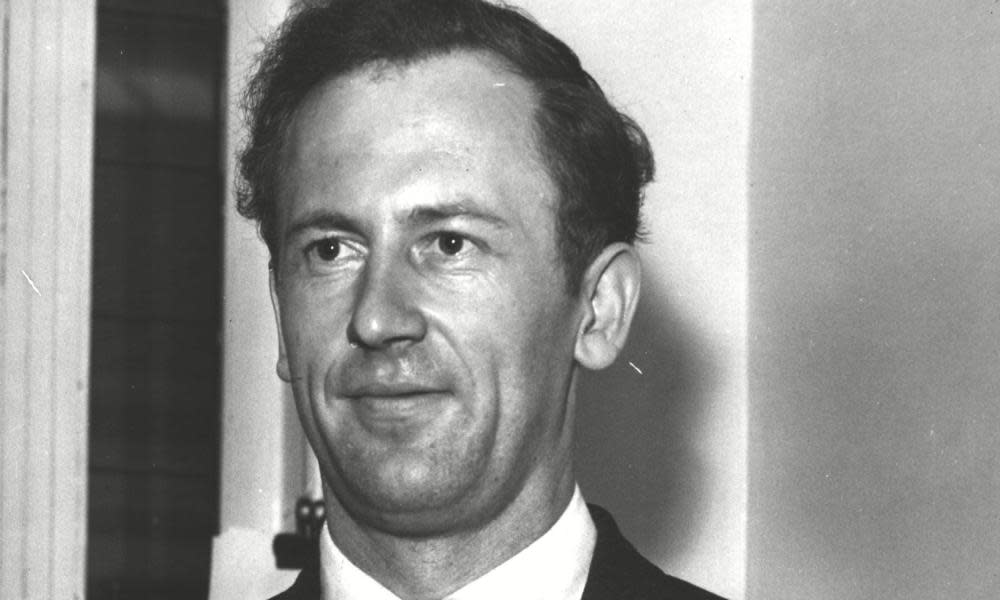Philip Purser obituary

The television critic Philip Purser, who has died aged 96 after suffering from Alzheimer’s disease, was one of the longest-serving and most respected pundits in the TV industry, in which he was also involved as a writer.
His detailed knowledge led to him contributing to numerous documentaries about British television and his appointment as co-editor of the 1982 and 1986 editions of Halliwell’s Television Companion. In the 1960s and 70s he was active in discussions on and off screen about censorship and the future of broadcasting, and was one of the chief adversaries of Mary Whitehouse of the National Viewers’ and Listeners’ Association.
A journalist on the News Chronicle until its demise in 1960, Philip vowed never to be “on anyone’s staff” again and became a dedicated freelance. Having reviewed television for the Chronicle and the Daily Mail, he decided to specialise and became the television critic for the Sunday Telegraph from its birth in 1961. He was to hold the post for 26 years, combining his critical viewing with careers as a novelist and dramatist.
For his debut thriller, he chose a down-at-heel, out-of-work screenwriter, Colin Panton, as the hero of Peregrination 22 (1962), who, working reluctantly for a travel agency, accompanies a tour party to Spitsbergen and discovers a Nazi-revivalist conspiracy.
Although Philip’s preference for unheroic heroes – more Graham Greene than John Buchan, as one critic wrote – brought his early thrillers complimentary reviews, they were overshadowed by being published at the same time as The Ipcress File and The Spy Who Came in from the Cold dominated the bestseller lists, and cinemagoers were queueing to see Dr No and From Russia With Love.
In 1968 he produced what many consider his best thriller, Night of Glass, about four Cambridge undergraduates, one of them, like him, a provincial grammar school boy, who turn a rag-week dare into a genuine attempt to break a prisoner out of Dachau concentration camp in 1938.
His first experience of television drama came when his second novel, a downbeat story of espionage and defectors, Four Days to the Fireworks, published in 1964, was adapted the following year in ITV’s Play of the Week series, with Denholm Elliott starring. Philip then adapted the story Calf Love for the BBC’s Wednesday Play slot (1966), and contributed an episode to ITV’s successful drama series A Family at War (1971).
Heydays Hotel (1976) for Granada, starring a young Nigel Havers, was, he maintained, an experiment in trompe l’oeil television; a conventional period drama turning unexpectedly into something quite different.
His Bafta-nominated drama documentary The One and Only Phyllis Dixey (1978) for Thames TV celebrated the life of the woman once labelled “Britain’s queen of striptease”.
Born in Letchworth, Hertfordshire, Philip was the son of Phyllis (nee Palmer) and Jack Purser. His mother, a talented artist and illustrator who became a noted designer of illustrated postcards, and father, taking a job with Tarmac in Liverpool in 1934, moved to live in Wirral. Philip was educated at Birkenhead school and, after a wartime short course studying engineering at Cambridge, served in the Royal Engineers in the Middle East and Europe in the last days of the second world warwar. He was to tell a fellow writer that the best thing he got from his military service was to be allocated a pair of Afrika Korps-issue pyjamas, captured pristine, which lasted him “for the next decade”.
With peacetime and demobilisation, he enrolled at St Andrews University with the intention of becoming an engineer. But after two years he left to pursue a career in journalism, moving to London to join the News Chronicle, and so began his exploration of all manner of storytelling.
In 1990, Philip combined his love of British film with his interest in wartime thrillers in the novel Friedrich Harris: Shooting the Hero, a tongue-in-cheek fantasy to plant an Irish-German Nazi agent among the crew filming the battle of Agincourt (in Ireland) for Laurence Olivier’s film of Henry V in 1944. The agent, Harris, working for Joseph Goebbels, is tasked with either persuading Olivier to come over to the Germans to help fight Bolshevism, or, failing that, assassinating him. Needless to say, an ample supply of Guinness and the course of the war thwarted the plan.
Shooting the Hero was an extended version of one of his favourite journalistic devices: the spoof. Notable April Fools’ Day articles included the Last Great Tram Race, inspired by his “childhood memories” of Liverpool, which prompted a huge number of fond recollections from readers but was completely untrue. It went on to provide the title of his memoir (1974).
In 2005 Philip produced a “rather belated” follow-up to Night of Glass in Lights in the Sky, about an attempt to smuggle evidence of the Holocaust out of Europe. He continued to work as a freelance journalist, contributing alternative biographies and book reviews to the Oldie and obituaries to the Guardian.
In 1957 he married the crime writer Ann Goodman, and the couple lived for many years in the Northamptonshire village of Blakesley. Ann survives him, along with two daughters, Harriet and Emily, and a son, Matthew.
• Philip John Purser, journalist, critic and author, born 28 August 1925; died 1 August 2022

 Yahoo Movies
Yahoo Movies 
